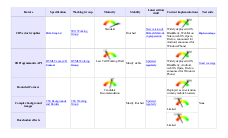At this year’s 21th International World Wide Web Conference – WWW2012, W3C organizes a W3C tutorial track over two days, on Monday 16 and Tuesday 17 April 2012.
Half-day tutorials from leading experts will be available to researchers and developers seeking to pick up new skills on the latest developments on W3C Web standards.
One of these W3C tutorials will be about “Developing Mobile Web Applications” and will be taught by Dominique Hazaël-Massieux (W3C Mobile Web Activity Lead) and Frances de Waal (W3DevCampus trainer for the Mobile Web and Application Best Practices online training course). The tutorial informations are summarized below:
- W3C tutorial on “Developing Mobile Web Applications”
- by Frances de Wall and Dominique Hazaël-Massieux
- on Tuesday April 17th – morning
- at the Lyon Convention Centre, Lyon, France
- Abstract: Participants to the tutorial will learn how to build applications for mobile devices using Web technologies. We will first focus on what makes it different to use the Web on mobile devices compared to computers: the specific constraints of these devices, as well as their increasing specific advantages. The tutorial will then look at how to exploit all the specificities of the mobile user experience, via JavaScript APIs, touch interactions, camera integration, etc.
- Please register to this tutorial before 13 February to get an early bird rate!





